Trailblazing the Tsukiji Tradition: Meet LA’s First Black Graduate from Tokyo Sushi Academy
Meet Reijirō Kashida, a sushi chef with a flair for traditional Japanese cuisine and a story that’s as unique as his culinary creations. According to the chef, he is the first black shokunin (Japanese Chef) graduate from North America with the Tokyo Sushi Academy in Tsukiji, Tokyo.
In Reddit AMA posts here and here, Chef Kashida shared his experiences from his first taste of sushi to becoming a certified sushi chef, offering insights into the world of sushi making and the challenges he’s faced along the way. Dive into his engaging conversation where he answers questions about his favorite dishes, the journey of his career, and much more.
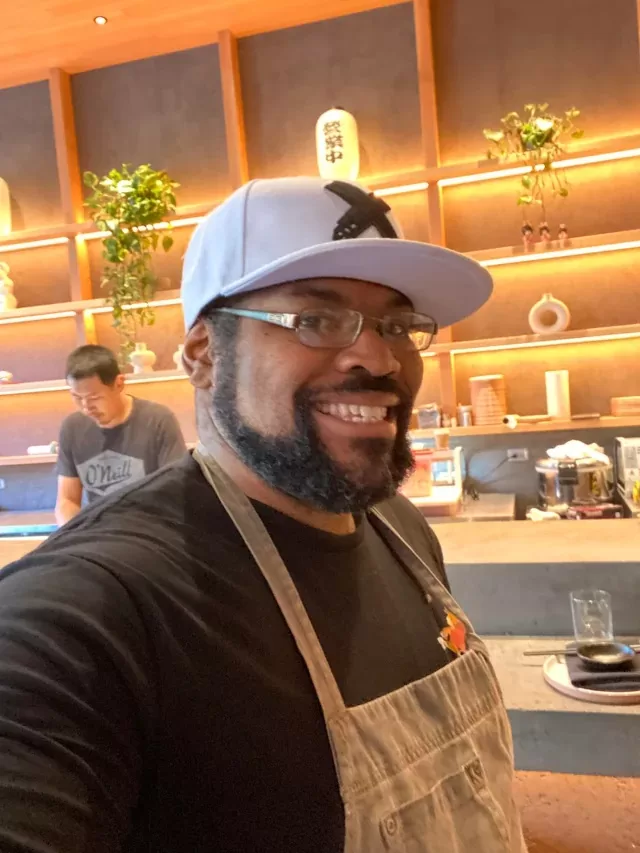
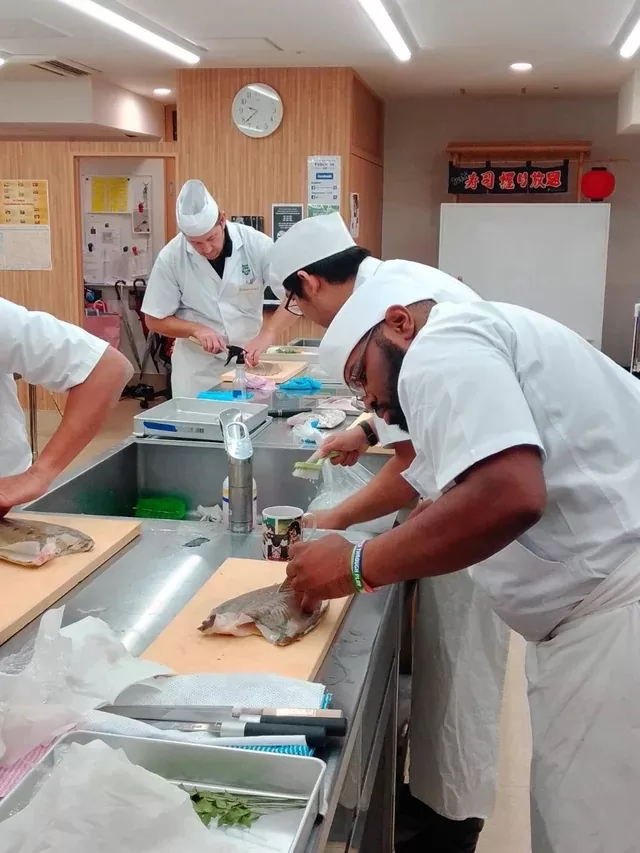
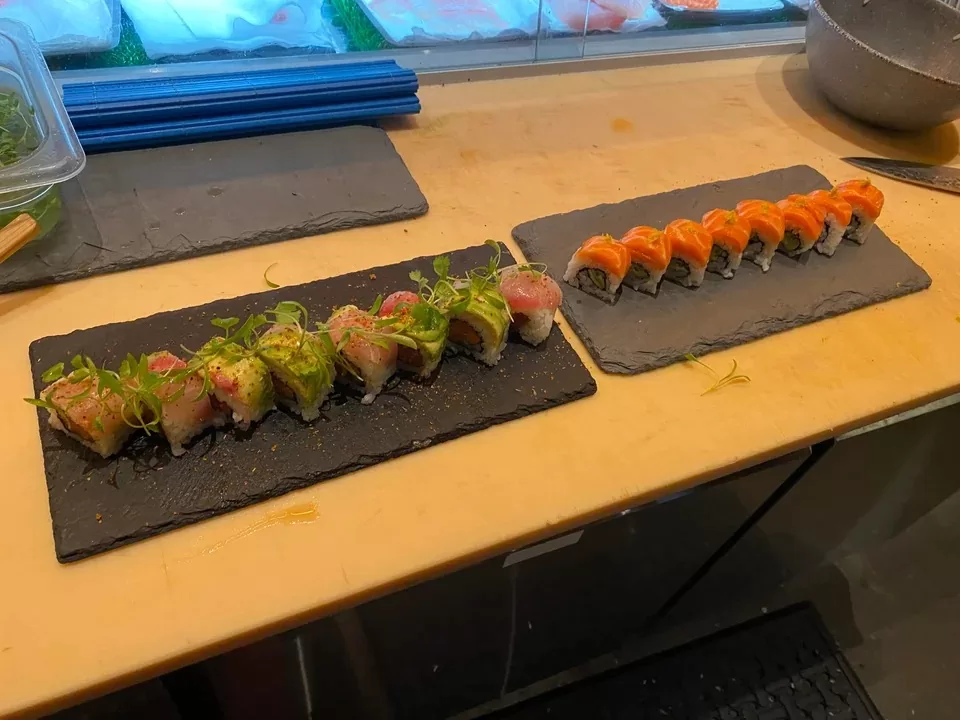
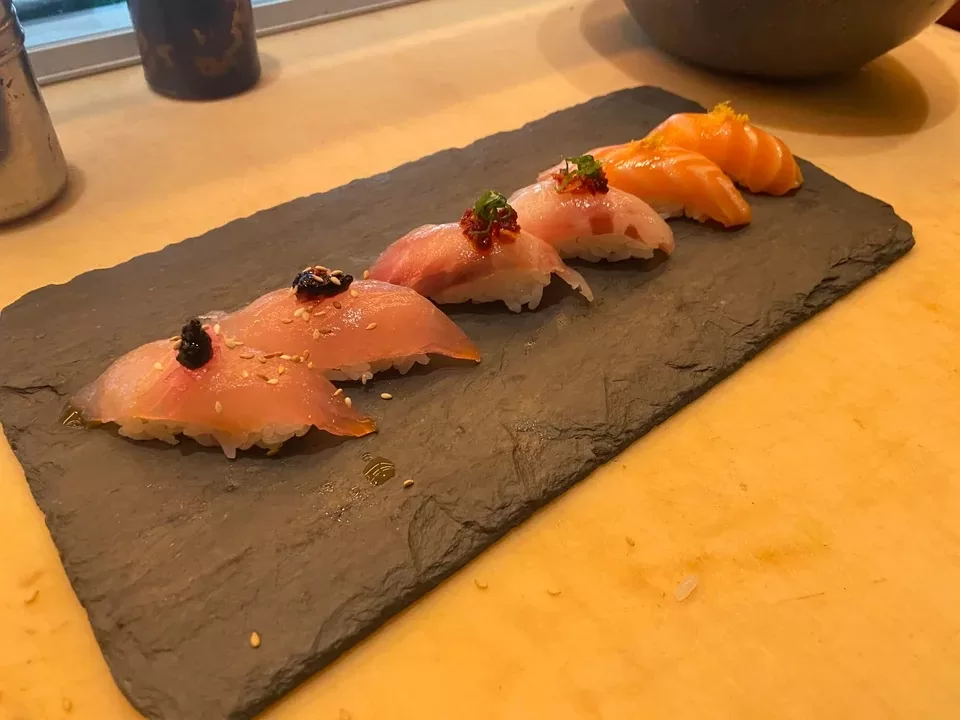
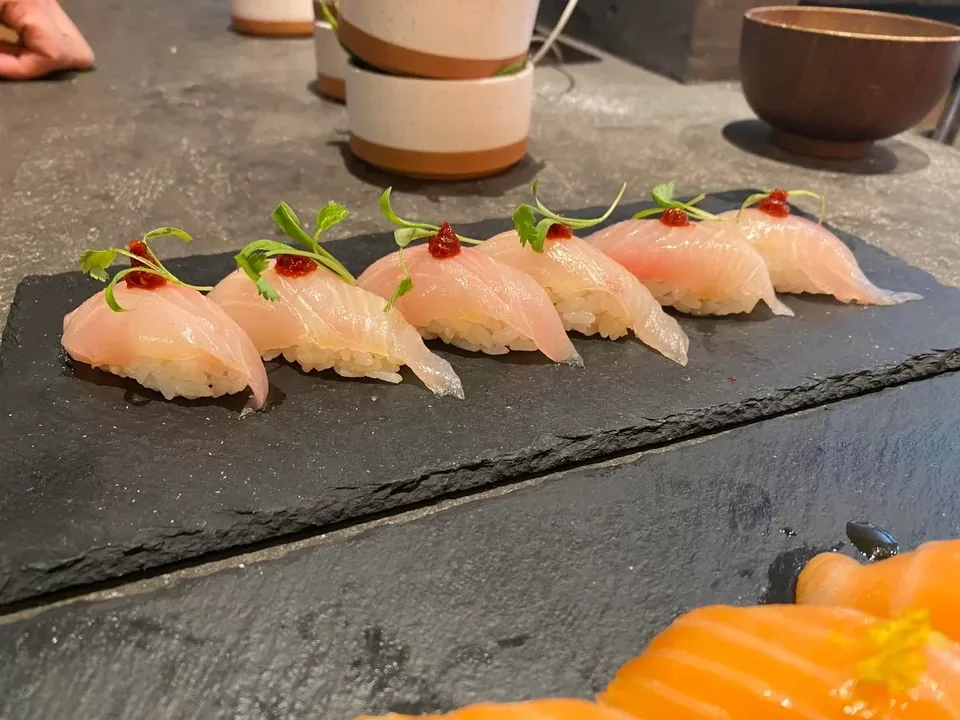
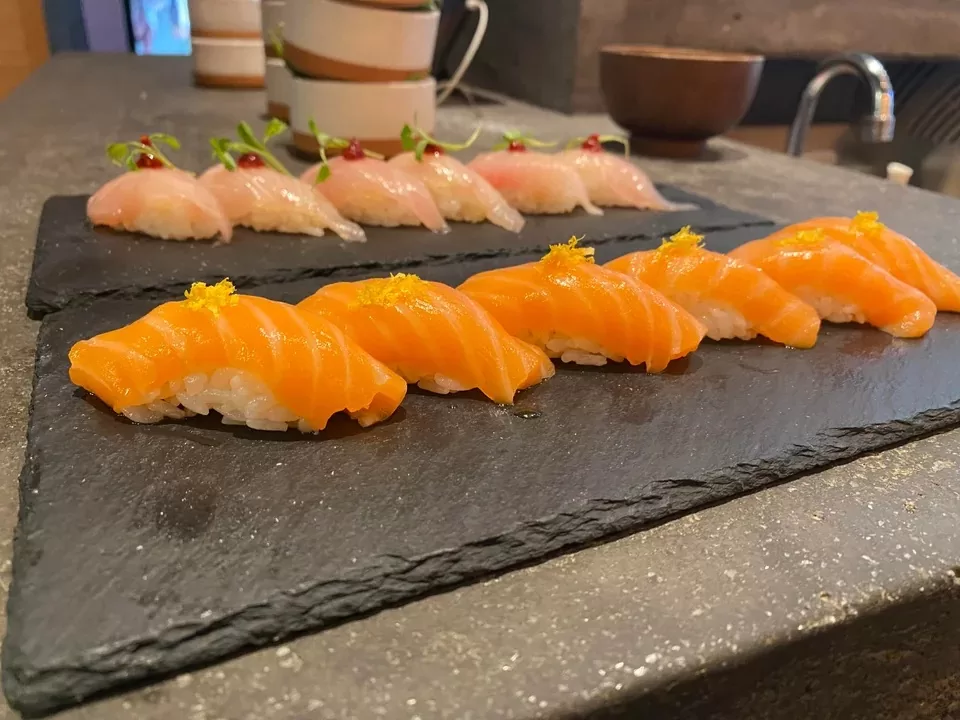
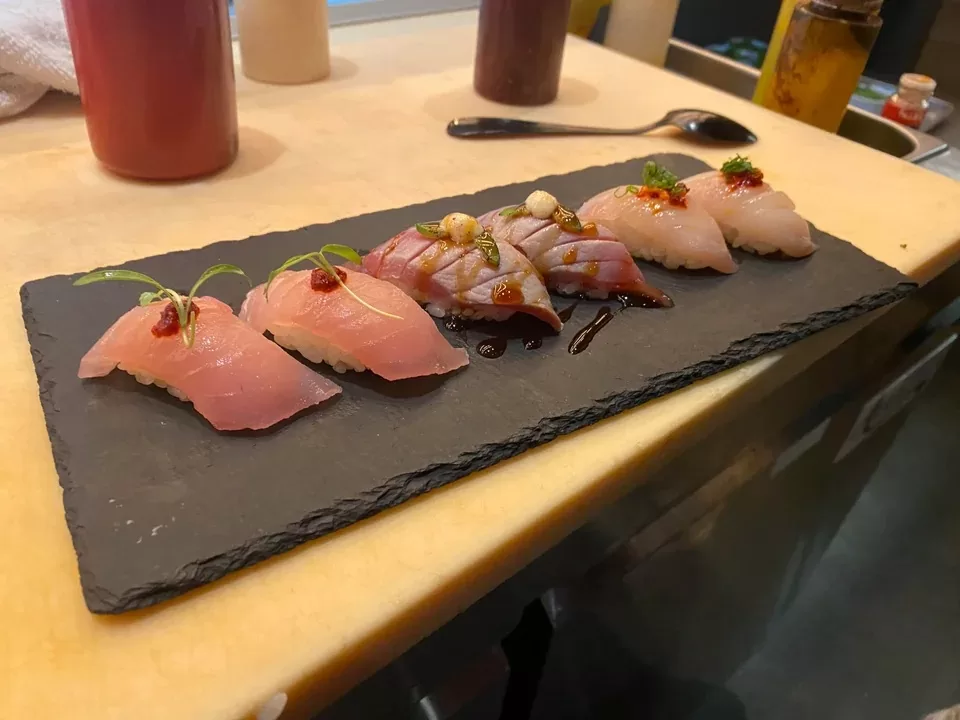
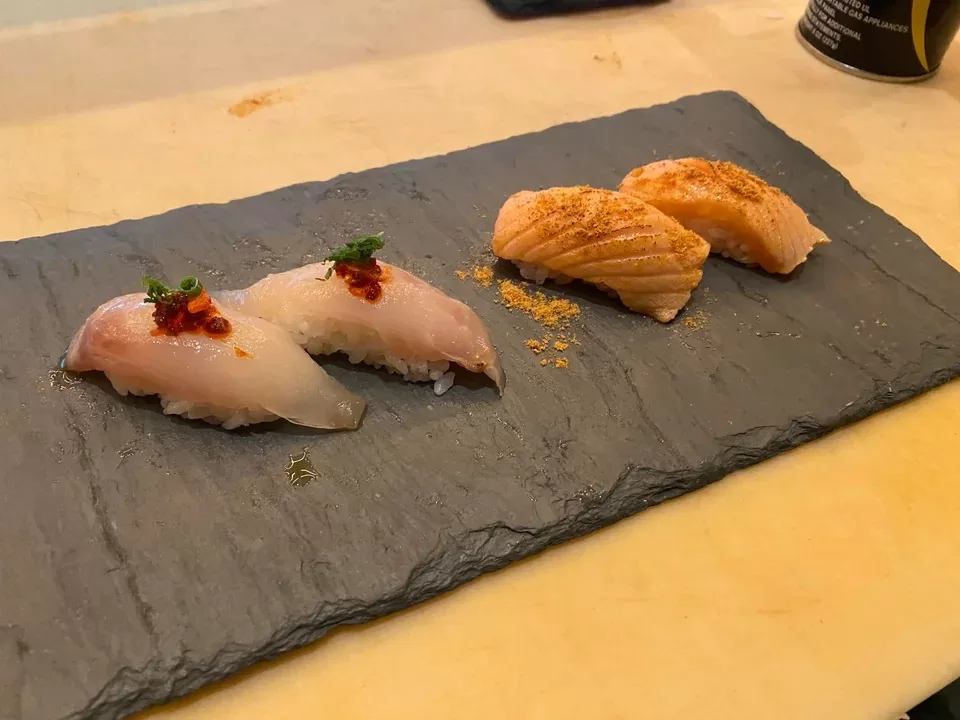
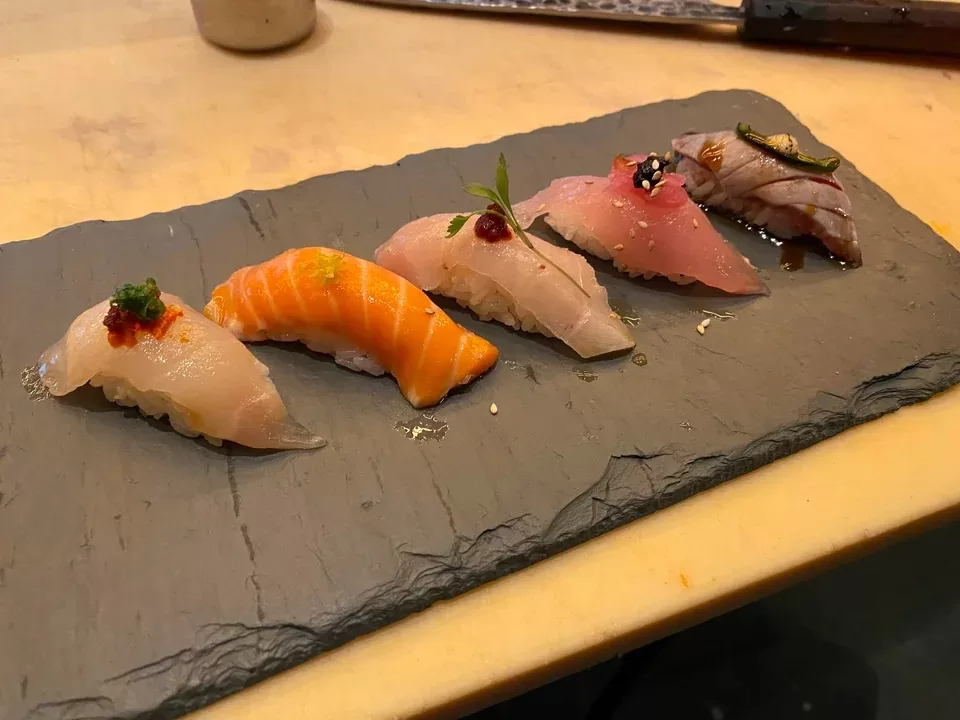
Background and Introduction
Q: What do they call you?
A: Okay I was called: “Kuma-san” (Mr. Bear), Obama and “Yasuke” 😂 But my professional Shokunin name is Reijirō Kashida.
Q: What was your first experience with sushi like? Did you develop a taste for it right away? It took me three tries before I was addicted:)
A: Like REAL Sushi that was wonderful and hooked me was at the Japan Pavilion at Epcot when I first visited there in ‘99. Parents gave my Brother and I $50 each and they turned us loose. We blew it all at an Omakase Lunch at the Matsu-no-Lounge.
Sushi-Making Experience
Q: Have you experienced any racism while working as a sushi chef?
A: Most likely during hiring/application stage. It all KINDA changed when I got certified as a Sushi Chef from Tokyo Sushi Academy in 2019. Usually when they allow me to stâge and show my skill, they completely change their perspective about me.
Q: From what I understand, there’s quite a bit of hesitation among sushi fans when it comes to being served by anyone other than a Japanese man. What unique challenges and/or opportunities do you anticipate going forward as a non-traditional-looking sushi chef? Do you have any concerns that, in Japan, you might be seen as more of a novelty?
A: Before I went to Tokyo Sushi Academy, I had experience as a Sushi Chef. But many places wouldn’t take me seriously and they would pass me over for jobs. I’m not Japanese or Asian and I would face barriers, but I didn’t give a damn.
Q: What is the one thing you learned that was the most surprising/interesting.
A: Each type of cut and technique with a knife has a name. There are DOZENS of them.
Q: Congratulations! What was your first food related job?
A: Don’t laugh…It was Burger King. LOL 😂.
Q: People usually ask what was the hardest thing during all of it, so what was the easiest part in all of this?
A: Eating the food and wowing customers. :3.
Q: How long is the training and what’s the expected path after graduation?
A: Well, training is as long as you want it to be. You gotta really love it and put up with your Sensei/Head Chef because they’re gonna be the ones to teach you. My 1st Sensei was fairly progressive and I was making rolls within 8 months.
Q: Hi there! This is amazing, I’m from Australia and have been looking into this exact course (5 weeks) and can’t believe I bumped into this post. Do you recommend it? Was the cost worth it? I’m curious about the total cost including school fee, flights, accommodation, general spending as I know you will have weekends off.
A: よ! Nice to hear that you’re looking to start at Tokyo Sushi Academy. I recommend it if you are actively looking to start a career in Sushi/Japanese Cuisine. Hiroko-Sensei and Hiro-Sensei are amazing teachers and will help you throughout the courses.
Downside is that it ain’t cheap. Cost me just under $7000 USD to take the courses. You’ll have to find your own lodgings, food (in class, you get to eat everything you make), transit and supplies. Hell, you better be prepared to drop over $1000 for knives. (I already had a set, no need to buy.)
Accomodations, I recommend First Cabin in Bakuro-yokoyama near Asakusa. It’s a premium capsule hotel, but you can get a First Class room thats like a tiny apartment. And if you do a long stay (More than 1 or 2 weeks) you get savings.
Eating in Japan is cheaper than you think. I get breakfast at 7-Eleven, grabbing a couple of Onigiri and they cost like ¥80-110 Each. Less than a Dollar. And if you’re willing to go looking at Japanese Diners, you can find lunch and dinner for less than 1000¥. But do remember to treat yourself.
I recommend it.
Q: Why does my homemade sushi taste like welfare
A: Did you season your rice? Is it cooked properly?.
Q: What do you think about the move towards more sustainable species of fish? Do you think that will take hold in the sushi world? I apologize if that’s a dumb question, I just don’t see it much on our local sushi menus here in Seattle.
A: It already has taken hold in the Sushi World in conscientious restaurants in the US and Japan. The world over.
And it’s not a dumb question at all. In this era of Climate Change and Overfishing, you need and want to know.
Seattle? I was a Chef at Expedia HQ before Covid ate my job. 🙁 Awesome kitchen and service area. Just sad it didn’t last so long. Before then, I worked as an Itamae in Ballard.
Q: Favorite place in Japan?
A: OSAKA. Best place to get drunk and the itis in Japan. So much food.
Q: Congrats! What’s your favorite nigiri?
A: Tie between Hamachi and Otoro. Love’em both.
Q: I need to know if you’ve ever tried gas station or 7-Eleven sushi.
A: Kamaboko, Kanikama garbage. Unless it’s from a Combini in Japan, don’t buy that crap. It’ll make your guts sound like a VCR Rewinding.
Q: What are the basics? The things you take for granted that the average person who wants to start making sushi wouldn’t understand yet?
A: · Getting your rice right. It needs to be sticky, soft and moldable. (Not mushy) Proper seasoning so it compliments the fish and tastes so good, you can eat it by itself and make it into an Onigiri when you’re done with service.
Q: What’s a good beer to pair with sushi and do you have a favorite? Mine was Asahi Select but it was discontinued recently. It’s an amber lager.
A: I tend to go with Sake or Wine with my pairings. I go for beer when I do Izakaya Style Foods like Karaage, Kushikatsu, Yakitori, etc. And if you must ask, Kirin Light.
Q: What is the recipe for your rice vinegar? I’ve been trying different ones and would love to try s chefs recipe
A: Rice Vinegar, Sugar, Mirin, Salt. That’s my recipe. I swear.
Q: What knives do you use? And congrats friend that’s amazing!
A: Deba, Yanagiba and my always faithful Gyutō. I usually end up using those 3 most of the time.
Q: Thank you kind sir for this opportunity. Can you enlighten me – do you buy these fish? Average cost? Ie. Where do you get your products from? If you can – what do you out pay?
A: It depends on the type of tuna and where it originated.
Bluefin Tuna are the Cadillac of Sushi fish. A WHOLE one can run $25K on the low end and almost $250,000 on the high end. I have never bought a whole fish, just the loin and depending on the cut, $250 to $2500.
When I was in Seattle, Pike Place Market.
In LA, Santa Monica.
Q: How are your Japanese skills? 😮
A: マアマアですよ LOL My Japanese isn’t too shabby. When you work in Japanese Restaurants and force yourself to read Japanese Cookbooks and drill yourself in Kanji and vocabulary, it will come and get easier. I can read a Japanese Newspaper pretty well, but there are times where I see some Kanji and I have to figure out what it is so I can get some context.
Q: Any tips for sharpening a knife?
A: Practice, Practice, Practice, 15° and Feel for the Burr.
Q: Ramen or udon ?
A: Udon!
Q: Did you already have some experience in sushi before attending the Academy?
A: 3 years before I went.
Q: Any recommendations for a picky eater that’s not too familiar with sushi?
A: California Roll and Shrimp Nigiri to start. You’ll love it. (Or hate it, gotta try it, right?).
Q: Do you like everything you have prepped? As far as taste?
A: Mostly. But hey, like all learning chefs, I’ve screwed up a few times. LOL.
Q: How much did cost for you to graduate and how much do you make?
A: About $6800 and I currently make about $70,000/year.
Q: Can you attend and succeed at Tokyo Sushi Academy not knowing Japanese but already having extensive Edomae style sushi experience?
A: Yes, although they’ll recommend the 6-Month Sushi Course for new beginners.
Q: Does the academy go into much detail on aging vs curing of fish?
A: Yessir!
Q: If I was dining with you as a white man, would it be offensive to ask you lots of questions about your experience as a black sushi student and shokunin?
A: Not at all, because I am a black man in a primarily Asian dominant field and they are fair and curious questions.
Q: What is your favorite rice variety for sushi even if not available in the USA? If it is available, how do you obtain it? I can only get mine at a single place in Japan.
A: I prefer Sekka Rice as a 1st Option. I love how it works with me. You can find it in Japanese/Asian stores like Mitsuwa, Nijiya, Uwajimaya, and H-Mart.
Q: What about vinegars in the USA? I can get certain Iio Jozo vinegar here but can’t source Yokoi’s at all. Can you hook me up with a supplier?
A: I go with any rice vinegar that’s on offer really. I’m not brand loyal in that sense. Kikkoman, Mikasa, etc. As long as it doesn’t suck, it’s fine.
Q: What specific soy does the academy recommend for nikiri sauce? Is your opinion different and if so, why?
A: It’s up to preference. A friend of mine gifted me some Mikawa Shiro Shoyu and it was amazing. Try different ones and trust your palate.
Q: Do you know of a source of slow growth wasabi in the USA?
A: Nope. I know Washington State grows Wasabi now, but I can get the root at Asian Markets. Make sure you have a Sharkskin Grater.
Q: I have a shop that is able to get certain fish for me from Tokyo but they often have trouble even if the fish is in season. I think it’s because I’m just a home chef and not ordering large quantities. Would my selection improve with a better relationship with a buyer? How can I establish this relationship?
A: Follow the seasons and buy from local vendors first. Just because you buy your fish from Toyosu Market doesn’t guarantee the best quality. We can get great stuff stateside. You can check online and sometimes, Costco can get some GREAT stuff. Find out what you wanna work with and research it. Establishing a relationship with a vendor is key, but that requires that you are a restaurant owner and have the ability to buy in bulk. The more you buy, the more the vendor will look out for you.
Q: What is your preparation of oboro? Can you go into detail on your method and the resulting oboro? It’s so uncommon that I can’t compare my preparation to any others. Who is making some excellent examples of oboro anywhere in the world that I could visit and experience as a textbook example to improve my methods?
A: Oboro is really simple. I toss my raw shrimp in a processor, beat the crap out of it (I ain’t doing that Mortar and Pestle shit… AIN’T NOBODY GOT TIME FOR THAT) and cook it on a low-medium heat and stir often. Don’t let it burn. Season with Salt, Sugar and Sake. That’s it.
Q: How did u initially become interested in Japan?
A: Truth be told…It was from a library book I checked out when I was like 6 or so that was all about Japan. The clothes looked so pretty, the language looked amazing, the architecture of the Castles, Temples and Shrines. I was dazzled.
Q: I wanted to ask if there was a set of rolls to eat, and order to them, that you’d recommend.
A: I don’t actually have a favorite roll. Like one of my inspirations Andrew Zimmern used to say, “If it looks good, eat it!” Rolls I make for myself for my dinner is a hodgepodge, but my hodgepodge rolls look and taste dope. :3.
Q: Why do you think your “race” matters?
A: Probably did. Hard to really say. I remember my first day at TSA, everyone was talking and conversing and then I walked into class and they went DEAD SILENT.
Q: Do you ever go out to eat sushi?
A: Oddly enough…No. I don’t. LOL I eat the stuff everyday and make it for dinner from time to time.
Q: Do you like sushi? 🙂
A: え? どう言うこと? OF COURSE! 8D.
Q: I know someone that never tried sushi before. How can I convince him?
A: Have him try it? XD.
Q: Favorite non alcoholic beverage to have with sushi?
A: Yuzu Juice + Mint + Ginger + Sprite = SUPER REFRESHING DRINK!.
Q: I’m thinking of taking a course there. I’m a sushi chef de partie but I never really work with omakase style sushi restaurant. I’m not sure if the cost really gonna justify my career ahead.
A: All our paths are different. Do what is right for YOU. I needed the certification because I never worked at prestigious Sushi Bar or Restaurant.
Q: Congratulations! One more reason to visit LA someday 🙂 What sort of qualifications did you need to be considered for acceptance?
A: Usually the short courses are reserved for people who have at least 2 years of Sushi Experience already. If you have no experience, you’ll have to take a 6-Month Sushi Course and they’ll teach you EVERYTHING.
Q: What is that sushi that is the liver of a bottom feeder? I almost cried from happiness last time when I had that.
A: Ah, Ankimo. Monkfish. I never handled it.
Q: How long did it take you to finish this process and where did you start?
A: I got my Culinary start at a place called Yaching’s East West Cuisine in Louisville, KY. When I started working at that place while I was in college and I fell in love with making Asian Cooking. Chicago was the place where I really started to bud as a Chef.
Q: I don’t know if you’re still answering questions, but what’s the prickly stuff in Unagi, and is it there because it was prepared wrong?
A: Prickly? Probably leftover bones. You can still eat them if it’s grilled properly.
Q: For a beginner, what tools do I need? Also… Why does my five year old love hamachi so much? It costs an arm and a cheek!
A: For a beginner…A good knife, sushi mat, a rice cooker. It’s a lot of practice and the speed comes with time. Hamachi is GREAT. Your kid has great taste. And it shouldn’t cost THAT much. I can get a filet for about $35-45. You have to process it yourself, but it lasts a while if you know what you’re doing.
Q: So so you speak Japanese then? I couldnt see the question anywhere but I didnt scroll all the way so sorry if it’s here!
A: Yes, I do! I would say I am around N3. Intermediate. I use Japanese almost daily and as a working language.
Challenges and Racism
Q: what racism did you face?
A: Fairly mild. Aside from people tossing my resume in the bin, I haven’t faced much racism. People want to ask me a million questions of why a Black Man is behind a Sushi counter.
Future Plans and Advice
Q: Congratulations! What do you plan to do now that you’ve graduated?
A: Right now, I’m an Event Sushi Chef in Los Angeles, CA. Biding my time until this damn pandemic is over and looking to start my own Yatai (Japanese Food Stall) most likely early next year. Gonna specialize in Sushi, Ramen/Udon and Tempura.
Tools and Techniques
Q: What’s the scariest fish to cut? Have you had to work with fugu?
A: Lionfish in Florida. (Invasive Species) It scared the hell outta me the first few times and I was really afraid of the spines that can pierce skin and inject you with a toxin. But, if you just cut them off with shears and be mindful, you’ll be okay.
Ingredients and Recommendations
Q: One more for you, if I may. Aside from the obvious (salmon, tuna, etc.), what’s the fish (or vegetable) you recommend? If you want to show off, what are you going to?
A: I love working with Hamachi, Otoro and Kohada. I love the Red Color in Hamachi and cut correctly, YUM. Otoro is very rich and my favorite part of the Tuna.
Q: Not sure if you can answer this, but what fish native to the US would be or might be good as sushi? Just sometimes wonder if sushi might be more sustainable if fish are locally sourced. Congrats on graduating!
A: Salmon, Snapper, Bonito, Big Eye Tuna, Gizzard Shad (Kohada), Mackerel (Saba) and Sardine. (Iwashi) All sustainable fish.
Q: Will you ever take the puffer fish course? If there is such a thing, heard it takes a long time to get certified to cook and serve that thing
A: Probably never will. Takes way too long and I don’t live in Japan where I can do it.
Q: Would you recommend sushi for a first date?
A: Yes! Wanna really impress your date? Learn some Japanese and order Omakase at the Counter using Japanese Names and Terms with the Chef. Hell, I got into my date’s pants after I make sushi and wine for them at my place. ;).